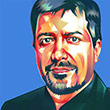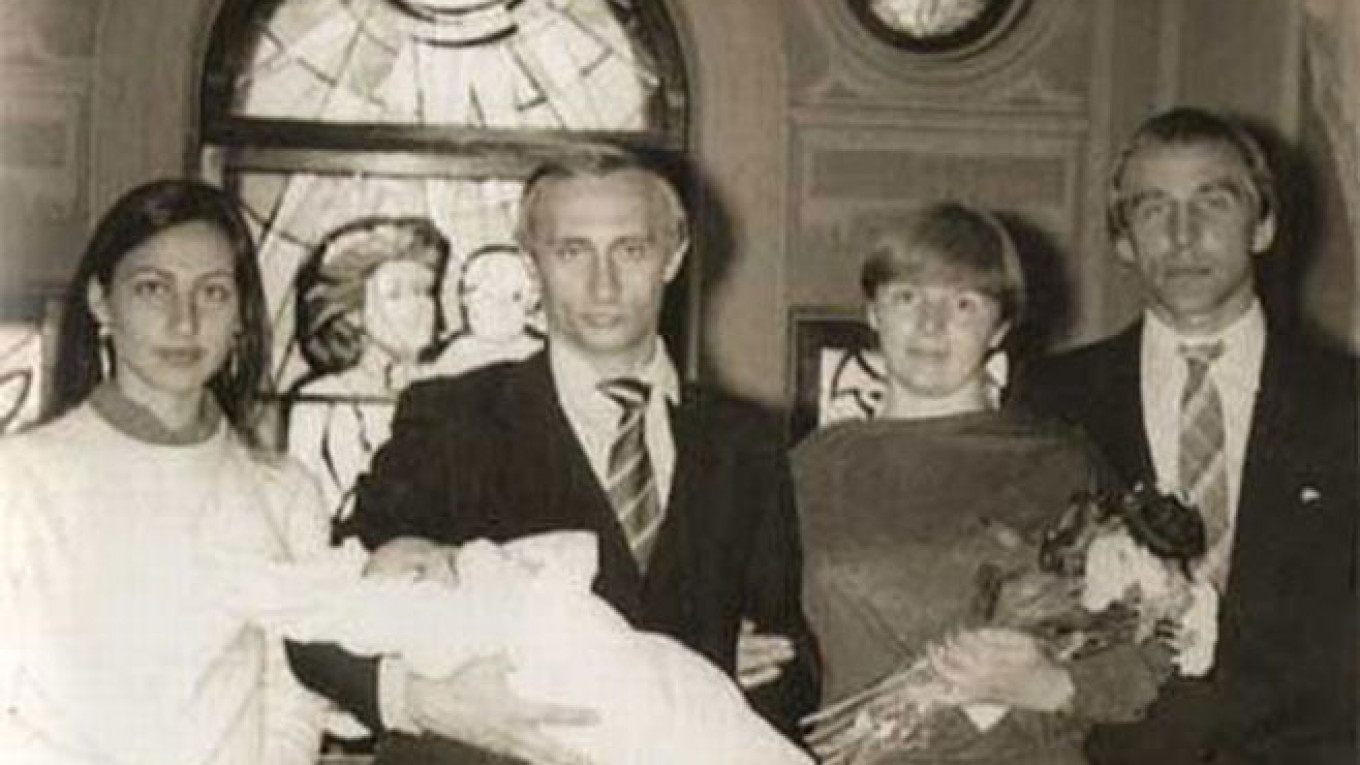
Maxim Trudolyubov
Two schools of thought dominate the Russian discussion of the country's political system and its economic underpinnings. These two ways of thinking or two value systems could be spotted in the public conversation that evolved while reports about the so-called Panama Papers were making rounds on Russian social media.
In the first worldview the knowledge generated by the leaked database of Mossack Fonseca, the world's fourth-biggest offshore law firm, represents a breakthrough in a fight against inequity.
"Civic institutions — journalists, public investigators, money laundering monitors, experts studying corruption are taking center stage in fighting large-scale corruption," Elena Panfilova, vice president of Transparency International, wrote on her Facebook page and in the Vedomosti daily newspaper. "Such a collective effort is one of the episodes of what amounts to a 'global values revolution' in which ordinary citizens emphasize integrity, transparency, accountability and honesty over more mundane demands."
Not everybody is so hopeful. The second worldview holds that knowledge is not real power. "Russian society has long got wise to corruption and would not be shocked to learn that yet another of Putin's friends would suddenly be discovered to be a yet another billionaire," journalist Oleg Kashin wrote in a recent commentary.
"Society's indifference is the Kremlin's biggest ally … It is unclear what kind of information needs to become public for millions of Russians to get horrified and decide that they no longer need such a president. Until this happens the Kremlin may feel fully confident."
The first worldview clearly highlights a country's legal framework and normative procedures while the second view emphasizes a realist attitude that is very common in Russia as well as in many other cultures. The first approach expects a citizen to follow formal rules; the second approach easily accommodates a person who prefers to adhere to informal norms.
The unfolding Panama Papers drama provides a glimpse into which of the two visions prevails in the world. In some places breaches of the law or ethic codes are seen as less acceptable than in others.
The leak has already produced its first high-profile victim: Iceland's prime minister, Sigmundur Davíð Gunnlaugsson, who stepped down on Tuesday after record numbers of Icelanders went outside to protest. According to the leaked data, Gunnlaugsson and his wife held a British Virgin Islands-based offshore company.
Germany has promised to tighten its anti-evasion rules. German Justice Minister Heiko Maas, in an interview with the Süddeutsche Zeitung, the newspaper that originated the investigation, called for a "transparency register," designed to prevent tax evasion and funding of terror groups.
The U.S. Justice Department said it would review the trove for evidence of corruption that could be prosecuted in the U.S. French prosecutors opened an investigation into French citizens' possible tax evasion. Italy's tax agency plans to launch its own inquiry. FIFA's independent ethics committee has said it would probe one of its own members over allegations related to the leak. Pakistani Prime Minister Nawaz Sharif three of whose four children, the records show, owned London real estate through offshore companies, said he would create a commission to investigate the allegations.
While many countries at least pay lip service to the formal rules allegedly violated by their citizens, Russian officials do not even want the pretense. They called the reports an outright information attack. President Vladimir Putin's spokesman Dmitry Peskov suggested the investigation specifically targeted Russia and was aimed at smearing the country in a parliamentary election year.
Russia's state-run television bravely assailed the news instead of ignoring it as many would have expected. "Families of 12 high-ranking Russian officials, it is alleged, held offshore firms and accounts abroad. People close to Vladimir Putin were also mentioned in connection with the leak," the report on Russia's Channel One said. "But no cases of wrongdoing have been confirmed. The administration of the Russian president has no illusions about the real purpose of this information attack."
Whenever they have to deal with uncomfortable news situations, the Kremlin press officers routinely call the published reports deceitful. The Russians buy it because the audiences generally do not expect formal rules to be real or facts to be unequivocally true. Russia's television has been swarming for years with crime shows and conspiracy stories that are impossible to prove. The Panama Papers investigation is seen as just one of those shows.
Even more important is a widespread understanding that business is always murky and politics is always dirty. Polls consistently show Russians do not believe that earning a fortune by honest means is possible. Most in Russia also do not believe that they would be able to exert any real influence on the country's policies. It is therefore normal that powerful people use tricks to hold on to the spoils of their lucky breakthroughs. While the use of foreign jurisdictions in most cases is not illegal it definitely is not unethical.
Russia's post-Soviet history may be one of the reasons for that cynical realism. Most of those who now occupy key decision-making positions in the Kremlin, state-owned business and media have gone through a profound disillusionment with formal rules that have often been seen as imposed by self-interested Western players.
Culture consists not just of what people make as inventors, manufacturers or artists. People also create collectively, as society. The resulting artifacts are informal norms and norm-related factors: this is culture too. There is a fundamental line of distinction between formal rules and informal norms. While the laws can be changed by a tsar or a parliament overnight, the informal procedures change, or may be changed, only gradually, if at all. The real law of the land is composed of both.
If the study of the leaks is a path to a more accountable state it surely would take a long time in Russia. Russia seems to have caught itself in a trap between the formal rules and informal norms. While the informal norms dominate the public consciousness it is the formal legal framework that is needed for the economy to fully function. The two value systems are in conflict in Russia whereas ideally they need to support each other.
The Panama Papers material is reported to have been leaked to the German newspaper Süddeutsche Zeitung from the database of Mossack Fonseca, the world's fourth-biggest offshore law firm panamapapers.sueddeutsche.de/en/. Two consortia of investigative journalists worked on the project: The International Consortium of Investigative Journalists (ICIJ) and the Organized Crime and Corruption Reporting Project (OCCRP). ICIJ is funded by private donors and makes a point of not accepting U.S. government funds icij.org/about. Another consortium, the OCCRP, is partly funded by USAID. occrp.org/en/about-us
Maxim Trudolyubov is Senior Fellow at the Kennan Institute and the Editor-at-Large of Vedomosti, an independent Russian daily.
A Message from The Moscow Times:
Dear readers,
We are facing unprecedented challenges. Russia's Prosecutor General's Office has designated The Moscow Times as an "undesirable" organization, criminalizing our work and putting our staff at risk of prosecution. This follows our earlier unjust labeling as a "foreign agent."
These actions are direct attempts to silence independent journalism in Russia. The authorities claim our work "discredits the decisions of the Russian leadership." We see things differently: we strive to provide accurate, unbiased reporting on Russia.
We, the journalists of The Moscow Times, refuse to be silenced. But to continue our work, we need your help.
Your support, no matter how small, makes a world of difference. If you can, please support us monthly starting from just $2. It's quick to set up, and every contribution makes a significant impact.
By supporting The Moscow Times, you're defending open, independent journalism in the face of repression. Thank you for standing with us.
Remind me later.








